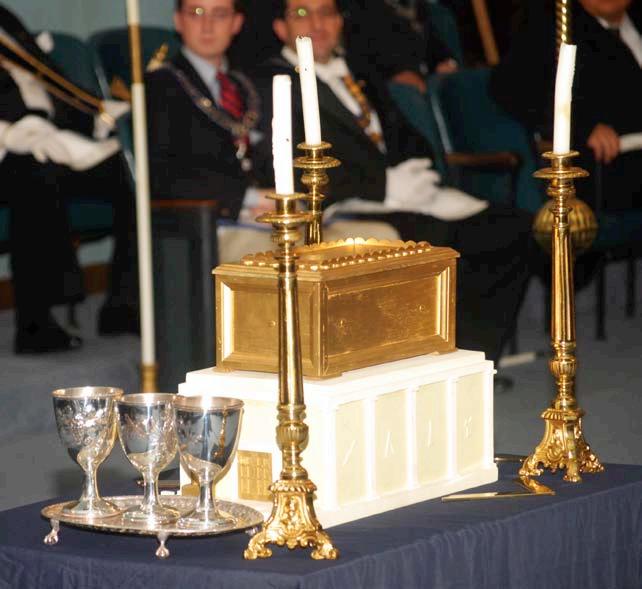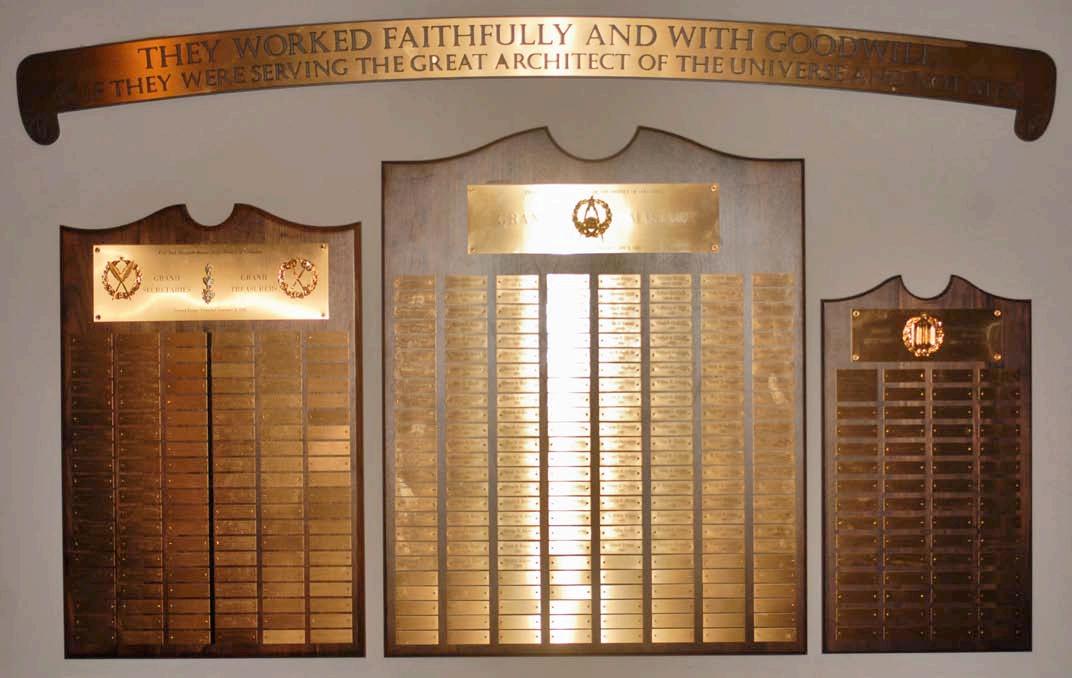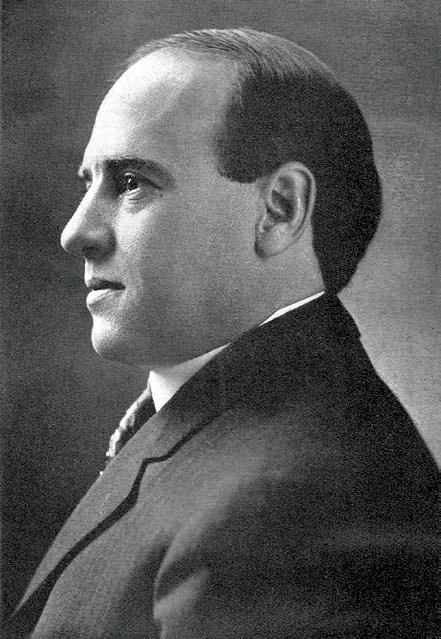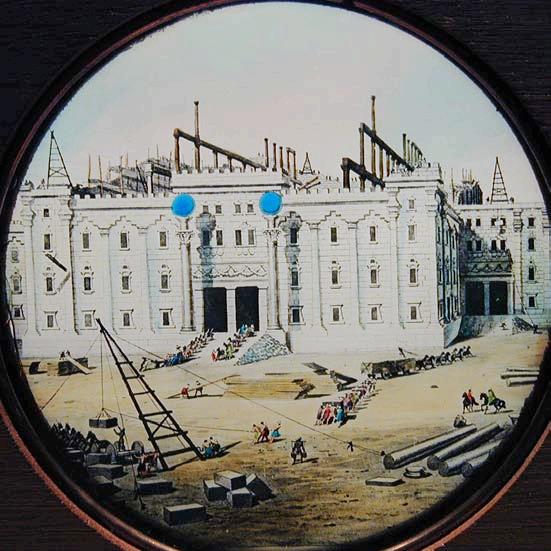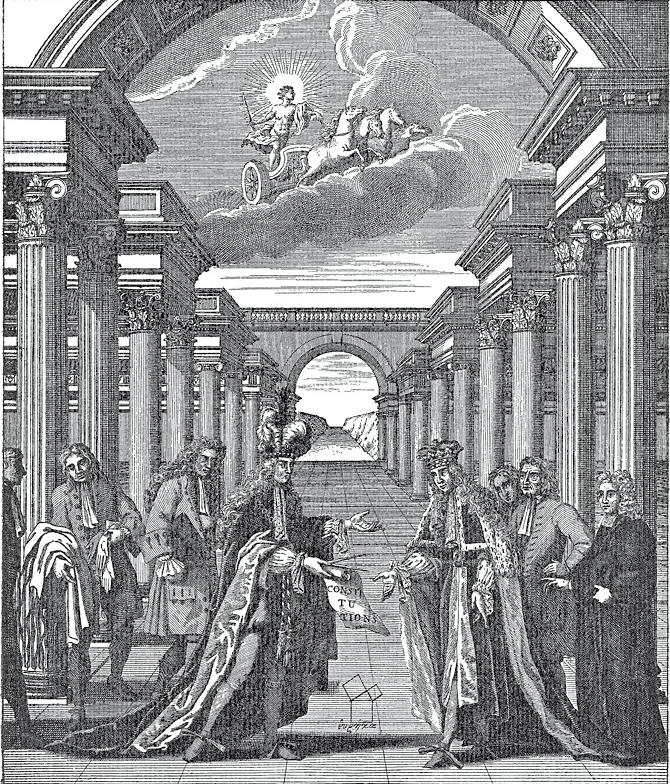
10 minute read
And the Greatest of These Is Charity
by Bro. Steven Brettell Fiat Lux Lodge No. 1717
In his first letter to the Church at Corinth, Paul the Apostle wrote much about charity. We as Free and Accepted Masons frequently talk about charity. We collect alms for charity at our meetings; we have line items for charitable giving in our budgets; and we trust our leadership and appended bodies to dole our charitable contributions for us for causes and institutions that are in need of our support.

Most of us are familiar with the King James Version of the Bible, so I will use this translation (I Corinthians: 1-13) for most of my citations in this article. I suggest that there are far more accurate, and possibly more attractive translations available, but I will use this one for the sake of familiarity. In this source we read: not; charity vaunteth not itself, is not puffed up, Doth not behave itself unseemly, seeketh not her own, is not easily provoked, thinketh no evil; Rejoiceth truth; not in iniquity, but rejoiceth in the
Beareth all things, believeth all things, things, endureth all things. hopeth all
Charity never faileth: but whether there be prophecies, they shall fail; whether there be tongues, they shall cease; whether there be knowledge, it shall vanish away. For we know in part, and we prophesy in part. But when that which is perfect is come, then that which is in part Though I speak with When I was a child, the tongues ofmen and I spake as a child, I ofangels, and have not understood as a child, charity, I am become I thought as a child: as sounding brass, or but when I became a tinkling cymbal. a man, I put away And though I have childish things. the gift of prophecy, Fornow weseethrough and understand a glass, darkly; but all mysteries, and Saint Paul the Apostle wrote much about charity in his then face to face: now I all knowledge; and epistles know in part; but then though I have all faith, shall I know even as so that I could remove mountains, and have not also I am known. charity, I am nothing. And now abideth faith, hope, charity, these three; And though I bestow all my goods to feed the poor, but the greatest ofthese is charity.” and though not charity, I give my body it profiteth me to be burned, nothing. and have In the Christian tradition, we use this word, “Charity,” frequently. The concept appears in most other Charity suffereth long, and is kind; charity envieth religious traditions as well. Usually we use it wrongly. shall be done away.
Charity is not an activity. It is a state of being. It is passages of this nature, and I refer you to scholars the context in which our activities take place, and better qualified than I to speak to this. from which our lives as men and Freemasons derive their meaning. In other translations of the Bible, we find the word Charity, replaced by the more accurate, though still general word, Love. Among the most famous passages in the Old Testament that speak of love, I quote from Deuteronomy 6:5: “Love the Lord thy God with all thy heart, and with all thy soul and with all thy strength.” What then is Charity? And what then is context? Love, in this Here, a word about Biblical translation seems to be appropriate. At the time of the King James Version’s Before we go further, I would like to set a couple publication, Hebrew had been a dead language for of ground rules for reading and thinking about this nearly 2000 years. This translation of the Bible was article and anything I say or write: I will be stating largely taken from Latin and Greek translations. some factual information, and this can be looked up The most famous Latin translation was the Vulgate, and carries no burden of proof from me. The reader of St. Jerome, and the most used Greek version is free to agree or disagree. I will also be stating was the Septuagent, which was the most widely my beliefs about some things. I want the reader to used scholarly version of the Bible at the time that NEVER believe any of Paul wrote his letter my opinions. I want to the Corinthians, the reader to accept my opinions for what Knowing and doing and which would have been familiar they are, opinions, to his audience. Paul and to think about them in that context. what is right is the core came from a Greek speaking city, Tarsus, Confucius, in his writings, desired to create an aristocracy of character rather than one of wealth or position. In about 480 BCE (before the Common Era) Confucius wrote that the superior man should “Do unto others as he would have others do unto him.” and probably grew up with this version of the Bible. In neither of these translations, do the words normally translated as “Love,” appear. In these, the word is “diliges,” or diligence. Obedience is implied, just as in the Qu’ranic discussion above. of gentlemanliness. The superior man becomes superior by deciding to There are generally three Greek words used in the behave in this manner; to seek that which is right Old and New Testament, which are translated by rather than that which is profitable. the King James Version as “Charity.” These are Eros, While serving as the governor of the State of Lu, Confucius said that “Another can judge a criminal case as well as I; I would like to eliminate the causes that created the criminal case.” In all matters governmental and societal, Confucius sought to increase Charity, Morality and Brotherly Love. Philios, and Agape. Where a love of man for God is being spoken of, the Septuagent usually uses a form of Eros. Erotic love is love for that which is lovable, which has value and from which we may derive some benefit. It is love from a petitioner to the supplier. Brotherly love is Philios. This is love for an equal. Both parties may gain from this form of love. It can be So what do I mean when I say that Charity may be closely related to Eros. Finally, there is Agape, which more accurately translated as Love, and yet that can be termed “love for the unlovable.” This is the Love perhaps too vague a term for it? In what way type of love God has for man. God can’t gain anything is Charity a context or state of being for our actions? from this relationship, it is actually disinterested love. These are the themes of this article. Agape is, then, the proper love of God for man, and In the Old Testament of the Judeo-Christian Bible, is reflected and imitated in the love of man for his and later in the Holy Qu’ran, the term “To Love,” fellows. Translated into Latin by St. Jerome, Agape is appears often. It is man’s duty to love God and became Caritas. The translators of the King James God loves the pious man: the man who does right, Bible made Caritas, into Charity. Charity, then is and lives in righteousness. In my scanning of a Love. Love is an active verb; not a description of an concordance to the Holy Qu’ran, I encountered many action, but the motivation for that action. It is a call to

action, which Free and Accepted Masons are sworn to radically pursue. In the Gospels, Jesus makes essentially two commandments for his Apostles. In addition to the commandments of the Old Testament, which Jesus sums up as “Thou shalt Love the Lord thy God with all thy strength and with all thy soul and with all thy mind. This is the first and great commandment and the second is like unto it: thou shalt love thy neighbor as thyself.” In his autobiography, The Seven Story Mountain, the Trappist Monk, (OCSO) Thomas Merton wrote about his primary education, and the sermons preached by the school chaplain. The chaplain was known as “Buggsy,” by the boys, and his favorite sermon was on the text from I Corinthians 13, with which I opened this article. Buggsy, was described as every inch the English gent, with a “broad, unlined brow, and great English chin.” Merton was not favorably impressed by the intellectual or theological prowess of Buggsy. Thirty five years ago, when I first read The Seven Story Mountain, I agreed with Fr. Merton. Buggsy, in trying to explain the concept of charity to the boys, said that charity could be best understood as “gentlemanliness.” By this, Merton understood that Buggsy meant all of the good sportsmanship, fair play, proper dress, and manners of the English gentleman. Merton went on to lament the idea that Jesus suffered and died, and the martyrs were burned so that we would know to stand up when a lady enters the room. The ludicrous nature of this idea appealed to my undergraduate righteousness. Over the years, my opinion has changed. Perhaps gentlemanliness is a good description of Charity. In the Bhagavad Gita, the hero, Arjunna is reluctant to do his duty to lead his people into a monumental war. His chariot driver is the Lord Krishna, who assures Arjunna that he must do this thing, because it is the right thing and needed at this time. Krishna defines right action, the knowledge of what is right, and doing it without interest in profit or punishment, but just because it is right, as Karma. Knowing and doing what is right is the core of gentlemanliness. Is this the essential meaning of Charity? Of Agape? Aren’t we called to a radical obedience to this law of love?

The other commandment that Jesus gives in the gospels is that each person should take up his cross and follow Jesus. What is the cross symbolic of? Punishment. Suffering. Sacrifice. Taken together, these commandments, the one to radically love our brothers in reflection of The Great Architect’s Love of us, and the other, to take up the cross willingly, suggest a very difficult idea. That we are called to always forgive, never remember a hurt, never envy. Always seek the right, rather than profit, and to decide to make ourselves superior men. To make good men better? And the most radical aspect of this demand is that we do it even to the point of sacrifice of self and death.
We aren’t asked to be polite, or to wear the right clothes, or hold open doors, or give all we have to a panhandler on the street. We are required to be polite, and reflect that in our presentation of ourselves so that we show respect for our fellows, and to bear their burdens and relieve them of difficult tasks, and to embrace the beggar on the street. Charity, Love, Agape is the state of being we have sworn to live within. We find in the moral application of the working tools of our trade the lesson of Morality, Brotherly Love and Truth. These truths grow out of a knowledge of our relationship in love through our creator toward our fellow man. When we of our own free will and accord are raised, we are raised to a new manhood. A manhood not governed by utilitarianism or ego, but by the context of charity. We say that a Free and Accepted Mason believes in doing unto others as we would have others do unto us. Further, doing these things is required of each of us individually. It requires us to give up much of ourselves. Charity vaunteth not itself, nor puffs itself up. We as Free and Accepted Masons, no matter what honors we have now, or have received in the past, must, according to our standards, live in this context of Agape. We have to give up our ego, and submit ourselves in love to the guidance of those we have chosen to govern us. These people must give up their egos to serve us in love. Confucius wanted to create an aristocracy based on quality of character, rather than of position or wealth; he believed that a properly educated population would live in love and respect for one another, supporting the rulers and being supported by them. In Surat Al-Baqarah, 3:103, The Prophet Mohamed stated that Allah united the hearts of his people in love so that by His Grace, they became brethren. In the Gospel of John, 21:17, Jesus asked his Apostle Peter if he, Peter, loved Jesus more than the other Apostles and Disciples. Peter answered, you know I do, Lord. “Then feed my sheep.” said Jesus.


